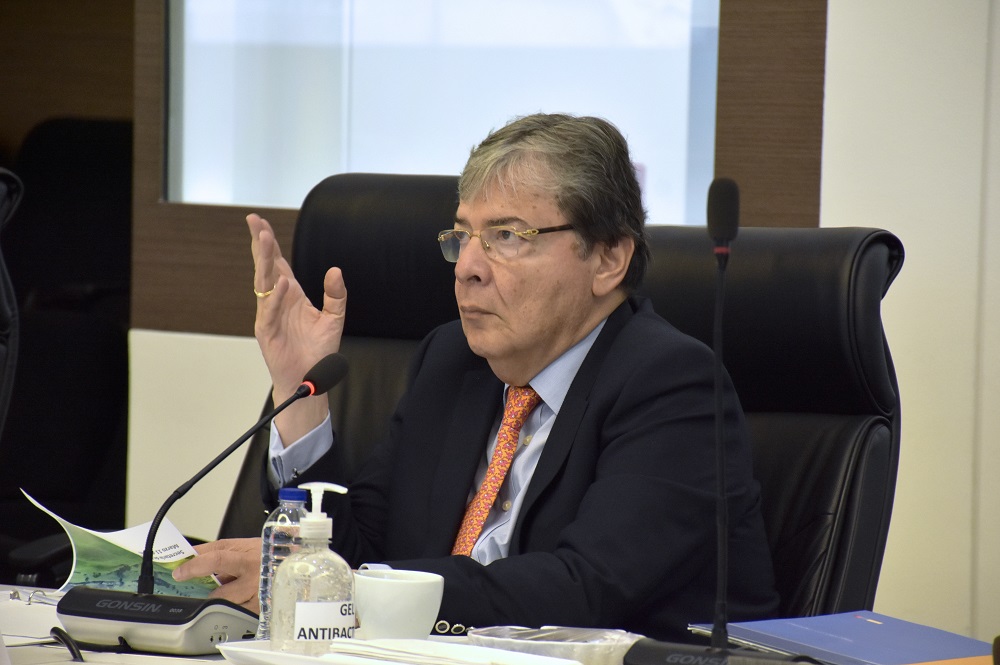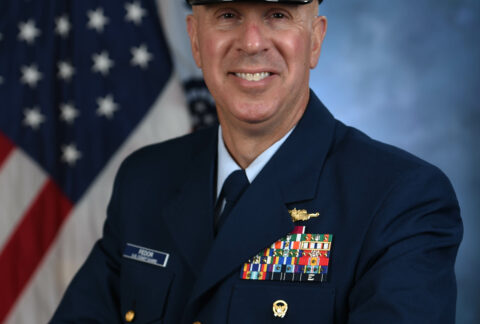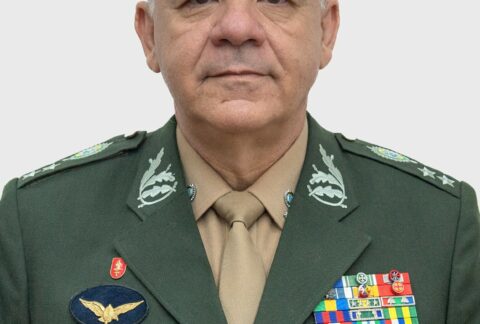Since taking up the reins of government, President Iván Duque has established among his priorities a head-on fight against narcotrafficking, against all the links in the criminal chain that are a source of financing for illegal organizations that bring violence and destruction to Colombian territories.
As the president has explained, this is a constitutional and moral obligation, because putting an end to coca means reducing the rates of violence in the communities and attracting social and economic investments to enable the transformation of the territories.
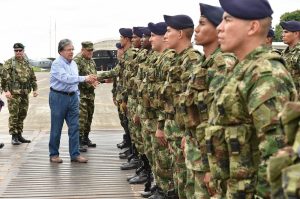
The challenge is great, but Colombia has Military and Police forces that have the sufficient capacity to take it on. The government of President Iván Duque inherited a country with 171,000 hectares of coca, a record figure in illicit crops, which become one of the chief engines of violence. The data confirm this: In those municipalities that, according to the United Nations, are core production sites due to their high concentration of coca crops, the homicide rate is, on average, almost double the national rate.
Given all these complexities, the national government issued in 2019 the Defense and Security Policy for Legality, Entrepreneurship, and Equity, a document that constitutes the Public Force’s roadmap to face threats, both internal ones and those that transcend borders and become transnational crimes, such as the global problem of illicit drugs.
Hence the importance of the line of diplomacy for defense and security, which has enabled us to deliver forceful blows to narcotrafficking organizations that finance crime in our continent, through stronger cooperation with partner nations and deeper regional partnerships.
A clear example of this cooperation is the effort conducted by the U.S. government through the U.S.-Colombia Action Plan (USCAP), particularly with U.S. Southern Command and the Bureau of International Narcotics and Law Enforcement Affairs (INL), especially geared to providing instruction and training by Colombian military and police experts to military and police officers of Central America and the region.
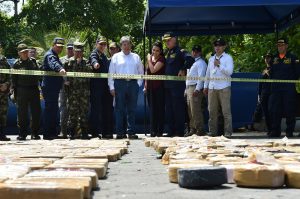
Cooperation is effective and does yield results. An example of this is the Orion Naval Campaign, in which 26 countries share intelligence to achieve greater effectiveness in interdiction operations, enabling during its fifth phase, conducted in April and May 2020, the seizure of 50.3 tons of cocaine hydrochloride — that is, about 126 million doses that will not be consumed.
This is a good time to praise and thank the U.S. government in particular for sending Security Force Assistance Brigade (SFAB) personnel to advise, instruct, and train the General Staff of four Colombian military units that are strategic in the fight against narcotrafficking. The exchange of experiences, knowledge, and capabilities that both nations have been carrying out for decades enables us to be more effective in countering this scourge, thereby protecting the civilian population that wants to live legally, which is our main purpose and for which we continue to move forward.
As I said previously, narcotrafficking is the main threat in Colombia, and countering it is not an easy challenge. But the Public Force’s selfless work, under President Duque’s policies, shows us that we are on the right track. In only two years, thanks to the monumental effort of soldiers, police agents, and marines, the government managed to halt and reverse the country’s upward trend in illicit crops.
The SIMCI report, the Integrated Illicit Crops Monitoring System of the United Nations Office on Drugs and Crime (UNODC), confirmed that coca-growing hectares decreased 9 percent in Colombia in 2019, meaning a reduction of 15,000 hectares that was achieved thanks to the Public Force’s manual eradication efforts and to the commitment of the national government, which increased the operation’s eradication resources from the onset, thereby adding to the number of Mobile Eradication Groups from 23 in August 2018 to 196 in March of this year. This led to the eradication in 2019 of 101,273 hectares of illicit crops, of which more than 94,000 were eradicated in the operation led by the Military Forces and the National Police.
The goal for this year, to eradicate 130,000 hectares, is an important challenge in which we are moving forward with the conviction that reducing coca plantation areas will provide more security for the communities.
But it is not the only front that our forces are fighting; every day, our service members deliver positive results when it comes to seizing drugs and chemical precursors and capturing or neutralizing members of these criminal organizations that are financed by narcotrafficking. Just to mention one example, during its first two years in office, the government has already captured or neutralized 117 leaders of organized armed groups and organized crime. And the authorities have seized more than 851 tons of cocaine, thanks to intelligence and operational capabilities that allow for drug interdiction in our country’s roads, ports, rivers, and coasts.
This year, interdiction results paint a favorable picture, with an increase of 5 percent in drugs seized. The Public Force has already seized 300 tons of cocaine from January 1 to August 27, 2020, so we expect that by the end of the year we will have a larger number of seizures than in 2019.
Combating the threat of narcotrafficking, as well as implementing the National Citizen Security and Coexistence Policy, which addresses security and defense with a comprehensive approach that requires unified state action, has caused crime figures to decline significantly. From January 1 to September 3, 2020, the 11 percent decline in homicide rate stands out, going from 8,645 cases in 2019 to 7,724 cases in 2020 — in other words, 921 fewer cases from one year to the other. The same goes for the statistics of kidnappings, extortion, and theft of all kinds, which show a significant reduction at the national level, to the benefit of the citizens.
Our military and police officers are doing all this work, while also assisting in a special situation that led us to intensify our efforts: the COVID-19 crisis. Their work has enabled us to enforce the measures to prevent the spread of the pandemic and, at the same time, to help thousands of vulnerable Colombians. That is why, from this platform, I thank you and express my pride in this work that history will recognize.

